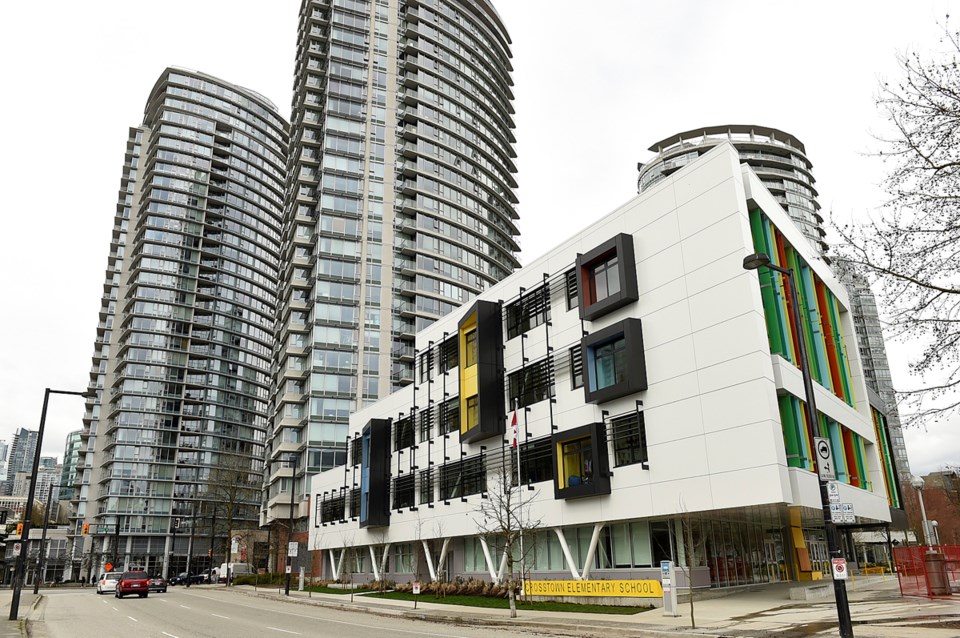A pair of motions going before Vancouver School board trustees Monday will attempt to address some redress.
Green Party board chair Janet Fraser is the latest to the wade into school re-naming waters. She issued a news release Friday morning spelling out a motion she’ll introduce at the Jan. 29 meeting.
The move specifically aims to change the board’s re-naming policy to “enable better representation of the city’s historic multicultural heritage and the board’s commitment to reconciliation.”
“The VSB has more than 100 schools, but as their names do not fully reflect Vancouver’s diverse, multicultural heritage, it's time to take a thoughtful and considered approach to change this,” she said in a news release.
Fraser says the policy change is meant to align with the city’s recent recommendations and apology for historical discrimination against people of Chinese descent.
Her motion comes a week after Crosstown elementary was again thrust into the conversation over its name. Fraser, however, does not include any mention of the downtown elementary school’s name that’s been dogged by some critics as bland, unoriginal and a failed opportunity to recognize the city’s cultural history.
A committee meeting on Jan. 17 saw Vision trustee Allan Wong call for a re-naming committee to be struck to get a new moniker process for the school started. The intention of Wong’s motion was to settle on a pair of names — one of them reflecting Indigenous culture — that are more historically significant. One of the names of choice is Alexander Won Cumyow elementary school. Cumyow was a Chinese-Canadian activist, court interpreter and legal advisor from the late 1800s and up until his death 1955.
“There are currently over 110 schools in the district and none reflect an Asian name,” Wong’s motion reads. “A name that binds the Asian and Indigenous community would show a powerful understanding and appreciation between the two historical communities.”
Should Fraser’s motion pass, individual school and community groups, along with input from Indigenous voices, will be tasked with developing and implementing the policy.
A host of name changes were either proposed or implemented across the city in 2017.
Sir William Macdonald elementary had its name changed to Xpey’ elementary in late October — Xpey’ means “cedar” in the hən̓q̓əmin̓əm̓ language of the Musqueam people. Xpey’ elementary became the VSB’s District Aboriginal Focus School in 2012.
Thunderbird elementary added the hən̓q̓əmin̓əm̓ translation — šxʷəxʷaʔəs — for Thunderbird to its school name last year as well.
The Vancouver Park Board approved a motion in October to consult with the Squamish, Musqueam and Tseil-Waututh First Nations about changing the name of Stanley Park’s Siwash Rock because the origins of the word Siwash can be traced back to the French word “sauvage” and is considered offensive.
Park board staff were directed to consult with the Stanley Park Intergovernmental Group, which includes representatives from the three First Nations, to determine if there’s a desire to rename the landmark. Staff will be reporting back to the park board on a potential process and time frame for renaming.
The first major civic building to have an Aboriginal name is the new library in Strathcona, which opened in April 2017.
It was named nə́c̓aʔmatct, which reflects the idea of “we are one” in the hən̓q̓əmin̓ə dialect of the Musqueam people. It was inspired by the community suggestion “Namwayut” — the theme of the City of Vancouver’s Year of Reconciliation activities.



